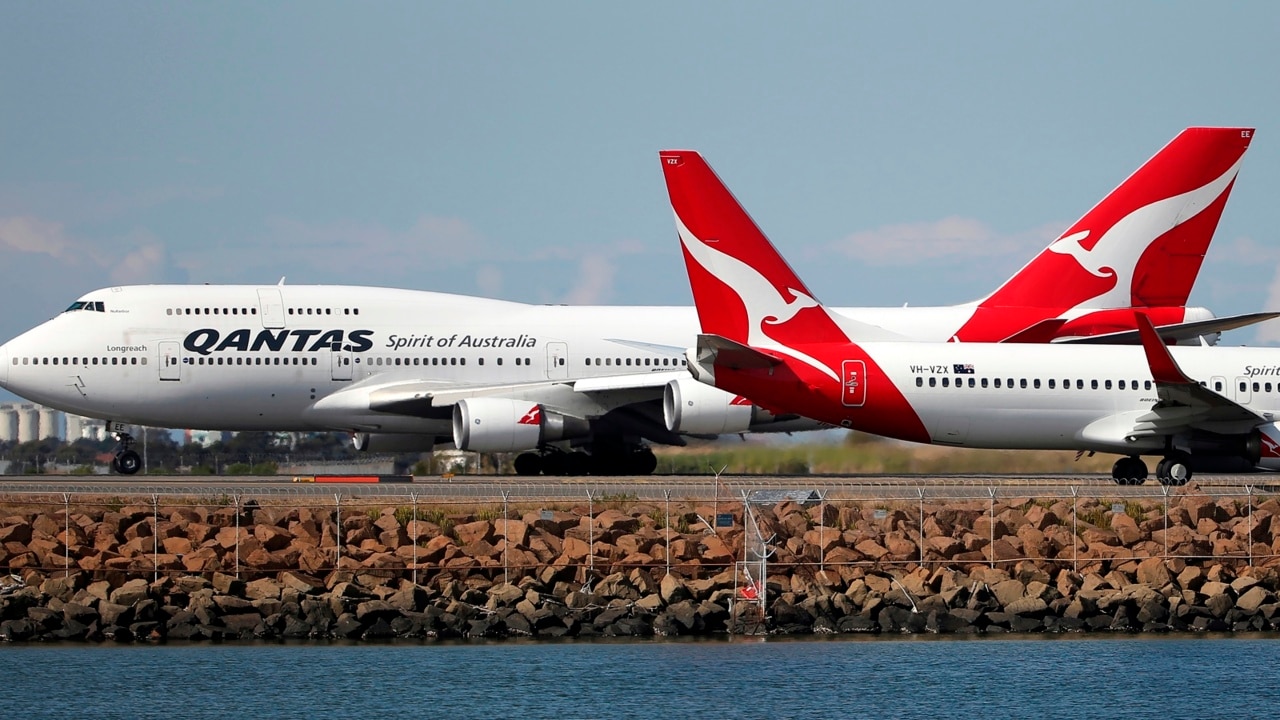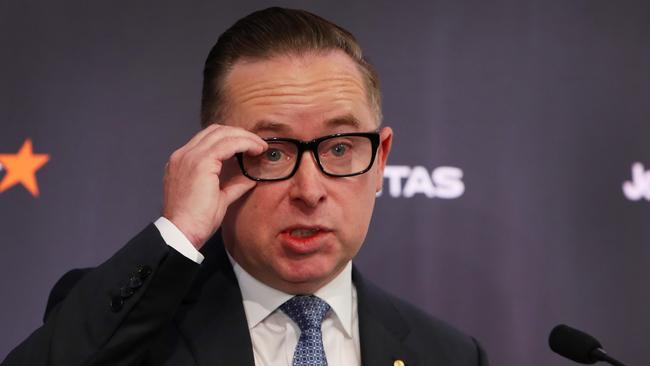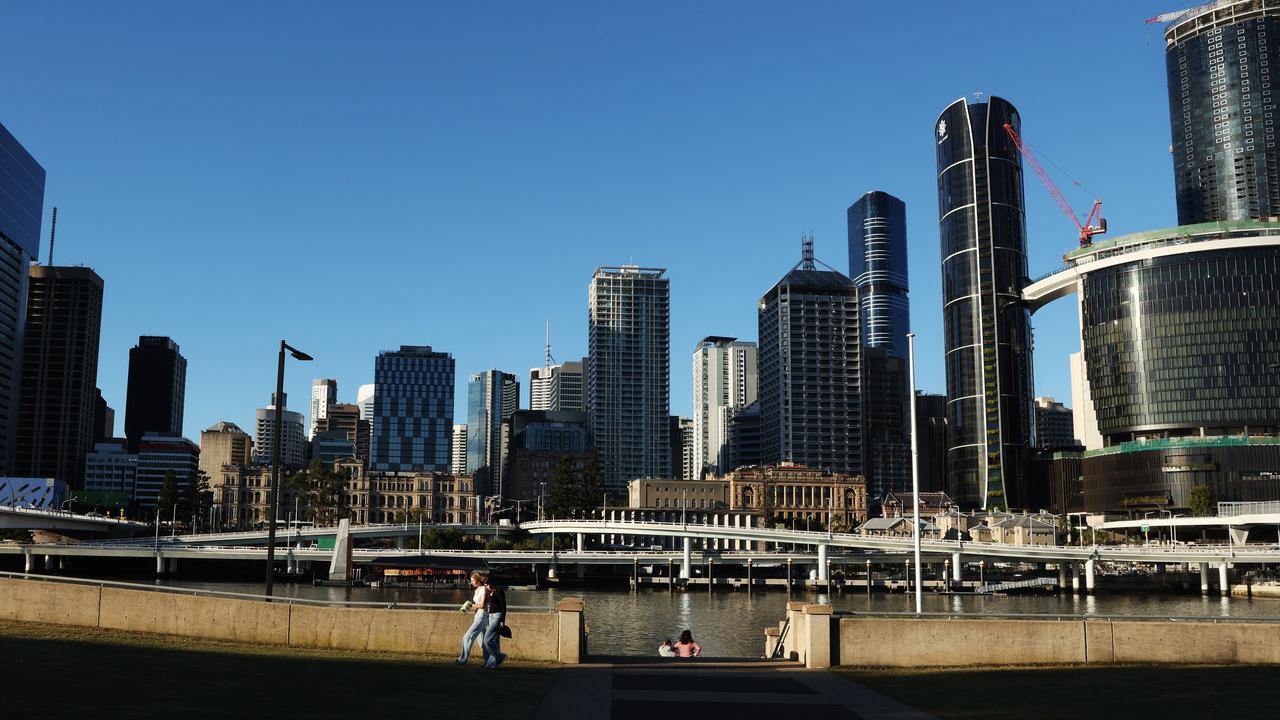Qantas numbers a tribute to CEO Alan Joyce
The Qantas annual report and what CEO Alan Joyce has planned for the Covid recovery period and into the 2030s are a resounding rebuttal of those who have been calling for his scalp.

Business
Don't miss out on the headlines from Business. Followed categories will be added to My News.
The two big numbers cited by Qantas CEO Alan Joyce make you wonder how the airline could possibly still be in business.
And not just ‘hanging on by its corporate fingernails’, still in business, but in robust financial health - market value $9bn, too little debt, and a $400m shares buyback.
Qantas – and indeed every airline around the world – was at the very sharpest end of government responses to Covid back in February 2020, as borders clanged shut everywhere.
But Qantas – and Virgin – were arguably at a much sharper end than just about everyone else. After 9/11 in 2001 airlines stopped flying for a couple of weeks. After the GFC in 2008 not at all – it was only dodgy banks that crashed back to earth.
But after Covid, quite literally, flew out of Wuhan at the start of 2020, airlines were grounded for months; and in the case of the Australian airlines that would go into years with the state lockdowns and border closures. It quickly ‘did for’ Virgin, which before Covid had been in business in the style of ‘hanging on by its corporate fingernails’, and also the great skill of former CEO John Borghetti in keeping a bevy of competing foreign airlines as major Virgin shareholders and money providers.

Qantas was essentially on its own.
As Joyce noted Thursday it lost $25bn in revenue over the Covid period. The total pre-tax losses from Covid added to $7bn. Now, I would have said, the losses were from government responses, not the actual Covid.
Some, like that former now-reviled PM’s closure of the international border right at the start, were sensible and even courageous; some like that of most state premiers, hysterical, authoritarian and not just unnecessary but actively destructive.
So, you might be thinking, Qantas got bailed out by JobKeeper. Yes, it was the single biggest recipient of JobKeeper. But the total its staff got, spread over the 2019-20 and 2020-21 years, added to only $855m.
Qantas got a further $750m in other government payments. But the $1.6bn total was a drop in the ocean against that $25bn that quite simply evaporated.
Yes, Qantas slashed and burned across its workforce – for which it, and passengers, to say nothing of the former staff, have been paying the penalty, as the passenger numbers came roaring back. But would anyone, looking at the brutal reality of those dark, locked-down days, closed borders and shuttered airports of mid-2020, stretching into one-off lockdowns and closures through 2021, seriously suggest Joyce had a choice?
I would say the numbers – and what Joyce has planned for the Covid recovery period and into the 2030s - are a resounding rebuttal of those who have been calling for his scalp.
They are also a resounding endorsement of the way former chairman Leigh Clifford stuck by – and with – Joyce, when there were similar, widespread calls for his head after he grounded the entire fleet in 2011.
That said, he has been CEO now for 14 years.
While I certainly don’t endorse the silly ‘time limits for CEOs’ nonsense, there does have to be a changing of the guard some time.
This is a pretty good time to start, and I emphasise that word start, the process. Indeed, precisely because of how Joyce brought the airline through.
The Qantas numbers were largely about the past; the Woolworths (and Coles) numbers are mostly about our inflation present and our, hopefully only, immediate future.
Woolies reported June quarter in-store inflation in the 3-4 per cent range, a touch lower than the 4-5 per cent from Coles.
But as even CEO Brad Banducci noted, most of the increase in supermarket sales is now coming from higher prices not higher volumes.
Better for Woolies, not so good for shoppers.
Originally published as Qantas numbers a tribute to CEO Alan Joyce





